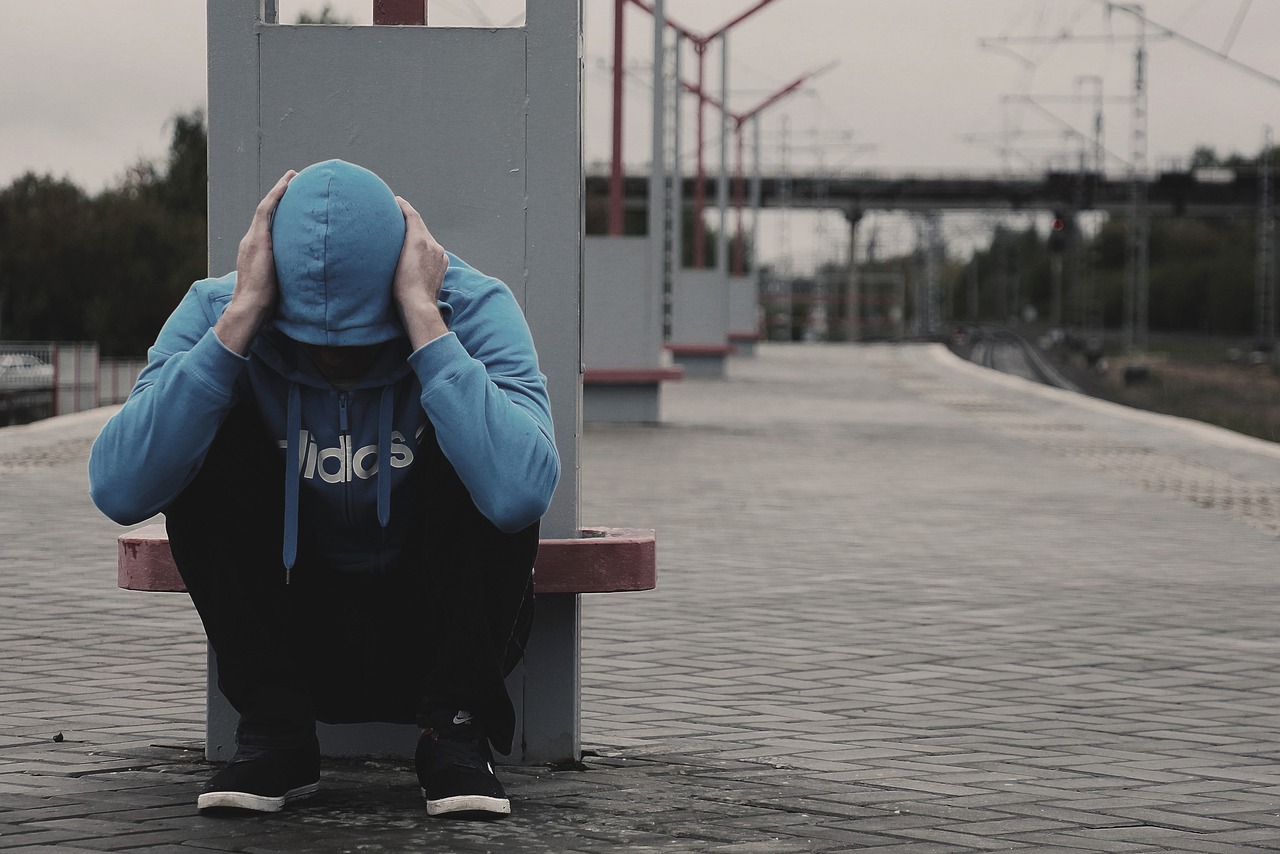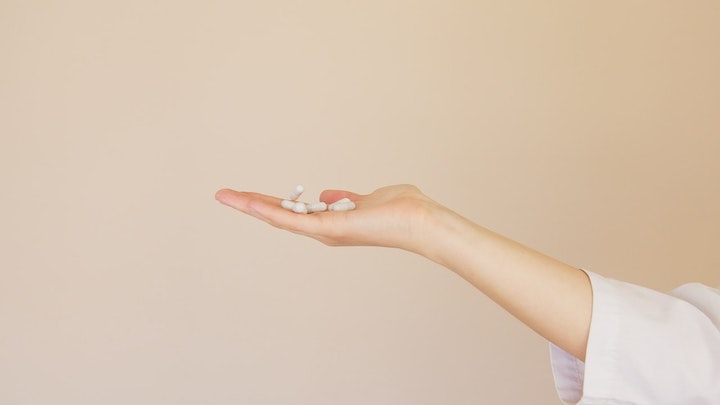A significant number of those who experience alcoholism will also suffer from depression.
We feel it fair to say that there is a strong causal link between alcoholism and depression.
However, it may be difficult to determine which condition arose first.
In some cases, you may drink alcohol to self-medicate the symptoms of anxiety and depression, whilst in others, your depression might have arisen due to your drinking. Alcohol is a depressant after all.
No matter which condition arose first, it’s important to correctly diagnose these co-occurring conditions before alcoholism treatment is embarked upon. This ensures you are treated for both conditions simultaneously for maximum effectiveness.

The causal link between alcohol and depression is well established. It’s possible that you drink alcohol merely to stop feeling depressed, whilst others may develop depression as a direct result of their drinking.
Studies indicate that those who suffer from depression are twice more likely to also experience alcoholism.
Before your alcoholism treatment begins, the assessing doctor will help to determine which condition arose first. A robust treatment plan will then be designed to ensure both conditions are treated at the same time.

Whether someone is just grabbing a drink at the end of a particularly bad day or suffers from a mental disorder, the most common reason given for drinking is ‘to take the edge off.‘ In other words, they are trying to feel better. And the truth is, at least at first, it does.
While this may be an okay choice for some people, for others, it is a slippery slope that can lead to drinking copious amounts of alcohol regularly. The latter is considerably more likely to happen to those who suffer from MD (major depression), which makes every day feel like a bad one.
The more people suffering from AUD (alcohol use disorder) drink, the more they feel they have to drink. Eventually, they start to build up a tolerance and have to drink larger amounts to successfully ‘take the edge off and achieve the pleasure they are seeking.
At this point, most alcoholics feel as if they cannot stop because it is the only thing in their lives that gives them relief from the symptoms of their depression or other mental disorder.
This can be true even if they do not realise they are suffering from depression, which they often do not.
It is usually not until the fear of drinking outweighs or at least equates to the fear of not drinking that someone will stop self-medicating. When an alcoholic wants to get sober and seeks treatment themselves, they are more likely to be successful.
When they get sober, no matter what treatment method they use, they can work to recognise if they were self-medicating and start to treat the underlying mental disorders healthily.

It is easy to become dependent on alcohol and not even realise it. The more people turn to alcohol, the more their body develops a tolerance to it, and the more of it they have to drink to get the effect they are seeking.
As tolerance develops, usually, so does the dependency, and the challenge of getting sober becomes increasingly more difficult.
So what exactly is a dependency? Dependency is when a person shifts from wanting a drink or choosing to have a drink every once in a while to feeling an intense urge or need to have one.
If anyone feels they need any substance, that is not required for survival, to feel good or to function, they are dependent on that substance. Furthermore, when that need or desire for alcohol takes precedence over relationships and work, the person is dependent on it.
At the point of dependency, recovery becomes so much more difficult because the person is less likely to want to give it up, will often feel like they cannot give it up, and will most likely experience withdrawal if they try to stop.
Often the physical and emotional turmoil of withdrawal stops someone from getting sober.

Depression is described as a low mood that lasts for a long time, affecting your everyday activities. This definition of depression was offered by the mental health charity MIND.
Whilst it is perfectly normal to experience bouts of unhappiness, it’s not normal to feel like this for more than a few days. If you feel immensely unhappy for more than a few days, you could be suffering from clinical depression.
Depression has the potential to have a significantly detrimental impact on your everyday life.
It’s thus not difficult to understand why so many people who suffer from depression ultimately begin to self-medicate with alcohol or other substances.
Doing so often provides these people with a means of escaping their current reality that’s tearing them apart from the inside.

Consuming alcohol regularly can have a significant negative impact on our emotional state, cognitive functioning and behaviour as well as leading to poor physical health.
It is wrongly assumed by many people that alcohol is a stimulant drug as people perceive that its short terms effects will increase their levels of alertness, enhance aggressive tendencies and make them more confident.
Alcohol does however remove people’s inhibitions during the early stages of consumption as its chemicals act to suppress areas of the brain that are responsible for us showing restraint. (6)
Scientifically speaking alcohol is classed as a depressant of the central nervous system, which means it possesses chemical elements that reduce the speed of brain activity and functioning, it achieves this by acting on and amplifying the inhibitory effects of a neurotransmitter known as GABA. (1)
Many people report that alcohol does improve their self-esteem, reducing feelings of anxiety and can make them more relaxed and comfortable in social situations allowing them to chat freely without their normal level of restraint.

Anyone who drinks a lot of alcohol in an evening will realise that their central nervous system will be depressed so much that they will experience a decline in several physical and neurological processes, including slurred speech, uncoordinated movement, distortions to their perceptual system and a rapid decrease in their reaction time.
Cognitive processes such as judgment, decision making and reasoning will also be negatively impacted. (1)
It is possible for people who drink too much in a short space of time to develop alcohol poisoning which can depress the central nervous system so dramatically that the area of the brain responsible for the respiratory process and consciousness can shut down resulting in the person slipping into a coma or dying.

Chemicals in alcohol affect the GABA neurotransmitter in the human brain which seeks to inhibit brain activity.
Alcohol enhances GABA which means that it will slow down certain areas of the brain that govern important physiological activities such as respiration and consciousness more than it usually does.
The result of this is that we can feel more relaxed, which initially seems like a good thing. However, sometime later after consuming more alcohol, we will experience drowsiness, slurred speech, a loss of inhibition and a decrease in perception and motor control abilities. (6,15)
There is no doubt it can be rewarding to drink alcohol as alcohol can trigger a dopamine (feel-good effect) release which motivates people to carry on drinking, these positive effects will be temporary however and as the person carries on drinking far more negative symptoms will begin to appear.
So, despite feeling initially relaxed after having a few drinks it is likely as their alcohol use continues they will experience anxiety and possibly experience negative emotions such as anger. (12,17)
Scientists researching alcohol have found that alcohol is consumed by some people to alleviate problematic emotional states, but if this becomes a habit then the natural balance of neurotransmitters in the human brain will be disturbed which will eventually lead to problems with mental functioning, mood and our ability to self-regulate.
This means that continuing to drink at high levels will substantially increase the probability that you will be vulnerable to developing depression and other mental health conditions and also exacerbate any mental health conditions you may have already been diagnosed with.

Although since the introduction of DSM5 it has become very complex to diagnose a person with depression because of the complex origins of the disease, as biological, social and interactional factors need to be considered.
Some of the depression generally include low mood, insomnia, poor sleep patterns loss of appetite, a sense of hopelessness and sadness, low self-worth fatigue, worry/anxiety, irritability, muscle tension, guilt, isolation, weight, difficulty concentrating, suicidal thoughts, feeling worthless, lack of interest in activities they once enjoyed. (2)

There are many forms of depression and we shall outline the most common forms of depression below:

Heavy alcohol use has a hugely toxic effect on the body, destroying brain cells and limiting our ability to get better, it also lowers the efficiency of the liver, arteries and pancreas along with each cell in the human body.
This places huge limitations on our ability to recover both physically and mentally.
Research, over the years, has highlighted the fact that the more often and heavier a person drinks alcohol then the more likely it is that they are likely to be diagnosed with severe depression(3,4)
Statistically, receiving a diagnosis of alcohol addiction or severe depression doubles the risk of being diagnosed with the other condition.
As alcohol is a depressant it is no surprise that heavy long-term use will cause depression due to how the chemicals in alcohol affect our brain mechanisms and over time alter the way the chemistry and biology of the brain and central nervous system operate. (1,15)

It has been revealed through clinical research finding that dual-diagnosis patients are extremely vulnerable to relapsing or disengaging with treatment and the health outcomes overall are poorer for this clinical group.
Patients presenting with alcohol use disorder and depression on the whole struggle to curtail the volume of their alcohol intake and see improvements in their mood.
Individuals diagnosed with a severe depressive disorder are more likely to be diagnosed with an alcohol use disorder than anyone who does not have any mental health diagnosis and has a higher relapse rate than those who have an alcohol use disorder but have not been diagnosed with another mental health condition. (7,12)
Patients diagnosed with alcohol disorder and depressive conditions tend to find it challenging to discipline themselves to stick to their medication schedule and tend to be more vulnerable to being admitted to the hospital, and are at increased risk of being homeless, becoming violent and committing suicide than those with just a single disorder.

People who suffer from depression and alcohol use disorder do have a greater sensitivity to alcohol when compared with patients who do not have another co-occurring mental health condition.
Therefore, there is a greater probability that they will be negatively impacted by drinking even a small amount of alcohol which could also make their depression much worse
Patients in this clinical category are a very challenging group to arrange treatment for as it can be difficult to ascertain which condition developed first, the excessive alcohol use or the depressive symptoms, and whether one condition had caused the other.
It is important when designing a treatment programme to try and understand the complex way both conditions interact with each other. (16)
There is also concern that the symptoms of depression can go unnoticed in some patients with both conditions as the intense and problematic symptoms of heavy alcohol use can mask depressive symptoms and inexperienced treatment staff and medical practitioners incorrectly assume it is a symptom of their alcohol disorder.

Research findings suggest that the more frequently and heavier a person drinks alcohol the stronger the likelihood that they will develop a major depressive disorder in the future has been found that there is over a 60% rate of developing depression if you already have an alcohol use disorder.
Being diagnosed with depression on top of an alcohol use disorder has been known to limit patients’ psychological resolve to abstain from, or limit their alcohol use. (1,7,9)

It also increases their relapse risk as they use alcohol to alleviate the depressive symptoms that they are unable to deal with. This explains why relapse rates are so high in people with alcohol dependence who also have a co-existing depressive disorder.

Having a mood disorder such as depression and engaging in heavy alcohol use can affect people at a physical, psychological, social and spiritual level. People with these two conditions will find their ability to function adequately severely limited and the quality of their social and interpersonal relationships will also be negatively impacted.
The two conditions can also interact to cause further distress and cause each condition to become worse due to the unpleasant and debilitating symptoms associated with each condition.
Research has indicated that it is much more difficult to recover from an alcohol use disorder if you have also been diagnosed with a depressive disorder, and there is a high rate of relapse for patients who have received a dual diagnosis. (1,5)

The self-medication theory does explain why people with depression are motivated to drink alcohol, as alcohol can alleviate difficult symptoms, feelings and states, including sadness, fear and anxiety and can act as a reliever of dysphoria as well as elicit feelings of pleasure and relaxation.
In lower amounts alcohol, relaxes people experiencing tense, anxious feelings and at high doses it is used to obliterate very distressing emotions, possibly resulting from stressful, traumatic events earlier in life
The psychological principle of negative reinforcement serves as a key motivator in human behaviour so it would be logical for people to consume alcohol if they realised that it would enable them to blank out traumatic experiences and distressing emotions.
Many theorists have proposed trauma as a strong factor in causing addiction, trauma is a powerful psychiatric condition which can elicit depressive symptoms and distressing emotional states. (17)

Depression is just one mental health condition that has a strong association with heavy alcohol use.
The complex relationship between alcohol and depression can be seen in the fact that it is very difficult to establish whether depressive symptoms are a result of excessive alcohol use where prolonged use has changed the way a person’s brain chemistry functions, or, whether experiencing unpleasant depressive symptoms leads people to drink alcohol to cope with the low mood and accompanying negative symptoms.

The symptoms associated with depression include low mood and anxiety, alcohol can help people cope with these negative symptoms, at least in the short term.
If people self-soothe with alcohol over the longer term then they will do themselves more harm than good and they can easily fall into a negative spiral and find that both their depression and alcohol use will worsen considerably.
Because of the addictive process, it is known that drinking alcohol is the only immediate way to relieve the uncomfortable withdrawal symptoms associated with heavy alcohol use, some of these symptoms may overlap with depressive symptoms and so the patients may not be depressed but suffering from withdrawal symptoms. (6,15,17)



There are two ways that the cycle between alcohol abuse disorder and major depressive disorder can happen. It is a debate among researchers which one is more likely, but no matter which one someone experiences, it can be tough to get out of it.
The first possibility is that the cycle starts with MD. A person will develop major depression first and then discover that in the short run, drinking alcohol takes the edge off of their disorder/what they are feeling.
Unfortunately, when they turn to alcohol because it seems to make them feel better, their depressive symptoms will end up worsening because of how alcohol affects inhibitory neurotransmitters like GABA.
When their depression symptoms worsen, they will turn back to drinking to seek the pleasurable/happy feelings they felt at first.
Eventually, they will start to depend on alcohol to make them feel better (even just for a little while), and thus, they will develop AUD.
The MD results in the AUD, which makes the MD worse, which in turn makes the person turn more towards alcohol, and develop more severe AUD, and the cycle continues like that—usually, until they hit rock bottom and want help.
The other possibility is that the cycle starts with AUD. According to certain researchers, people are more likely to develop an alcohol use disorder first.
They try alcohol, and their bodies and minds become addicted to the substance and its effects.
Unfortunately, along with the positive effects they feel, they are more likely to go through a depressive episode and develop MD.
When the person develops MD, they turn more and more to alcohol to avoid the negative feelings, and their AUD worsens. Of course, the vicious cycle continues back and forth, one disorder worsening, and then the next, until they seek help for themselves.

One of the challenges in treating patients with depression and alcohol use disorder is that for long time addiction specialists and mental health professionals were very extremely knowledgeable in their area but lacked enough knowledge and understanding of the other condition which did not often lead to a successful outcome for the patient, particularly if each condition was treated separately.
The current best practice for treating patients with depression and alcohol use disorder is to integrate the treatments so patients receive treatment for each condition simultaneously rather than treating one condition first before moving on to the other.
Treatment is carried out by a specialist dual diagnosis team that has excellent knowledge and technical expertise in treating both conditions together.
This treatment approach diminishes the likelihood of any confusion and communication issues that may arise when two separate treatment teams care for clients without any form of collaboration between them. (7)

Anyone seeking a diagnosis for a depressive disorder should be assessed by a doctor or psychiatrist to achieve an accurate diagnosis, the most recent version of the Diagnostic and Statistical Manual for Mental Health Disorders (DSM5) acknowledges several different types of depressive disorder, each with its own set of symptoms. (2)
Some depressive symptoms also overlap with other mental health conditions and not everyone who has the same diagnosis of depression will often have the same specific symptoms.
For example, patients with Post Traumatic Stress Disorder can also exhibit depressive symptoms. (2)
It is, therefore, recommended that anyone who presents with symptoms of alcohol use disorder should automatically be recommended for a mental health assessment as well such as the frequent comorbidity between alcohol disorders and depression.
To achieve a successful outcome for the patient, it is important for both conditions to be treated simultaneously by dual diagnosis experts who fully understand the nature of both conditions, and how the conditions interact with each other.

There is a strong relationship between alcohol use disorder, depression and trauma, so it would also be wise for mental health professionals to assess each client for symptoms of trauma and Post Traumatic Stress Disorder (PTSD). (18)
Trauma-based therapy helps to process deep-rooted, negative emotions and painful trauma that may well still be stored inside the body and in urgent need of processing.
This form of therapy will prevent patients from being overwhelmed by strong, distressing negative emotions that become so unbearable that people need to turn to alcohol to shut these feelings out. (18)

There will be a psychiatrist present as part of the dual diagnosis team who will be on hand to prescribe the most appropriate medication for patients with a depressive disorder, this could include medicine to stabilise their low mood or antidepressants to reduce certain depressive symptoms as well as anti-anxiety drugs should they present with high levels of anxiety.

Patients diagnosed with alcohol use disorder will be required to undergo detox treatment to remove the toxic chemicals from their bodies brought about by their high alcohol consumption.
This usually takes place under the supervision of qualified medical staff who understand the dangers associated with sudden alcohol withdrawal and lasts for approximately 7-10 days. (14)
5. Cognitive Behavioural Therapy (CBT)
CBT has been proven to be a very effective therapy for a whole array of mental health disorders including alcohol addiction and depression, and through the IAPT service, it has significantly improved the well-being of patients suffering from mild to moderate anxiety and depression.
The primary goal of CBT is to enable patients to contemplate and change the way they think about themselves, their lives and how they make sense of what happens to them.
Some people possess thought patterns that are irrational and unhelpful and only serve to increase their psychological distress.
CBT helps patients recognise unhelpful thought patterns and to change them with more helpful and productive ways of thinking that in the long term benefit their mental health and enable them to adopt a more positive mindset. (8,15)

IPT is a talking therapy that is designed to help patients with depressive disorders and focuses mainly on the quality of people’s relationships.
Having a depressive disorder and/or an alcohol disorder can negatively affect patients’ close relationships, which only serves to add to their psychological distress which can make both their depression and heavy drinking much worse.
IPT uses a technique based on attachment and communication theories and seeks to examine how the way people interact with each other affects their mental health.
IPT is an effective therapy as it helps to support patients experiencing many difficulties at the same time such as heavy alcohol use and low mood.
After engaging in 16-20 sessions of IPT people are more effective and confident in communicating with others and can reflect on how their behaviour impacts others. (8)

There are individual counselling and psychotherapy sessions available for people who feel their depression is reactive and a result of distressing and traumatic life experiences that they have been unable to overcome.
Talking through your feelings in a safe place with a qualified therapist can help people make sense of their life experiences and provide a platform to help them process these difficult experiences and move forward with their lives

Having regular MI sessions will help patients maintain the motivation to recover from their heavy alcohol use and with support from the therapist patients will be able to identify and work through any psychological barriers that may disrupt their efforts to get better.

Group therapy is an important form of therapy for people with an alcohol use disorder and depressive symptoms as it allows attendees to build connections with other people who have been through similar experiences.
Attending group therapy will help people realise that they are not alone in their struggles and they have a strong supportive network around them that will offer encouragement and a listening ear.
It will also help people improve their interaction styles and begin to understand the perspective of other people so that they can learn the importance of empathy.

Many specialist rehab centres that treat people with a dual diagnosis recognise the value of integrating holistic therapies into their treatment programme.
These therapies include mindfulness, art and music therapy, drama therapy and equine therapy all of which bring a balance to the treatment programme and provide a different avenue for expressing unresolved emotions alongside the more traditional talking therapies that patients will usually be prescribed.

When depression and alcoholism arise together, you are said to suffer from a dual diagnosis.
To overcome a dual-diagnosis disorder, it is vitally important for you to undergo specialist treatment.
When you contact Rehab 4 Addiction on 0800 140 4690, we can advise on rehab clinics in your area that can help you overcome both depression and alcoholism simultaneously.
We endeavour to refer you to an alcohol rehab clinic that offers a bespoke treatment plan for dual-diagnosis disorders.
This plan will be tailored to your needs. You will begin your treatment by undergoing a medically assisted detox. You will then benefit from psycho-therapeutic therapies, meditation and complementary therapies.
(1) Attenborough, J. (2010) Alcohol and Mood Disorders in Phillips, P., McKeown, O., & Sandford, T. (ed) Dual Diagnosis: Practice in Context. John Wiley & Sons. Chichester.
(2) Black, D., Grant, J. (2013) DSM5 Guidebook: The Essential Companion to Diagnostic and Statistical Manual of Mental Disorders, 5th Edition. APP. London.
(3) Camden and Islington NHS Trust (2022) The Unhealthy mix between alcohol and mental health. Available@ The unhealthy mix between alcohol and mental health | Camden and Islington NHS Foundation Trust (candi.NHS.uk)
(4) Champney-Smith, J. (2003) Dual Diagnosis in Peterson, T. & McBride, A. (ed) Working with Substance Misusers: A Guide to Theory and Practice London. Routledge.
(5) Gossop, J. (2005) Multiple Substance Misuse and Multiple Dependencies in (ed) Dual Diagnosis and Psychiatric Treatment: Substance Misuse and Comorbid Disorders. Marcel Dekker. New York.
(6) Kuria, M.W. et al (2012) The Association between alcohol dependence and depression before and after treatment for alcohol dependence. available@The Association between Alcohol Dependence and Depression before and after Treatment for Alcohol Dependence – PMC (nih.gov)
(7) Mueser, K.T., Kavanagh, D. (2004) Treating Comorbidity of Alcohol Problems and Psychiatric Disorder in Heather, N., & Stockwell, T. (ed). The Essential Handbook of Treatment and Prevention of Alcohol Problems. John Wiley & Sons. Chichester.
(8) National Health Service (2022) Types of Talking therapy. available@ Types of talking therapy – NHS (www.nhs.uk)
(9) National Health Service (2022) Rethink Mental illness@Microsoft Word – Dual diagnosis b.doc (www.nhs.uk)
(10) Northamptonshire Healthcare NHS Foundation Trust (2021) Dialectical Behavioural Therapy available@ download.cfm (ft.NHS.uk)
(11) Peterson, T. & Davies, M. (2003) Motivationally Based Interventions for Behaviour Change in Peterson, T. & McBride, A. (ed) Working with Substance Misusers: A Guide to Theory and Practice London. Routledge.
(12) Phillips, P., Johnson, S. (2010) Explanatory Models for Dual Diagnosis in Phillips, P., McKeown, O., & Sandford, T. (ed) Dual Diagnosis: Practice in Context. John Wiley & Sons. Chichester.
(13) Pratt, C.W., Gill, K.J., Barrett, N.M., Roberts, M.M. (2007) Psychiatric Rehabilitation. Elsevier Academic Press. London.
(14) Raistrick, D. (2004) Alcohol Withdrawal and Detoxification in Heather, N., & Stockwell, T. (ed) The Essential Handbook of Treatment and Prevention of Alcohol Problems by (2004). John Wiley & Sons. Chichester.
(15) Royal College of Psychiatrists (2022) Alcohol and Depression. Available @ Alcohol and depression | Royal College of Psychiatrists (rcpsych.ac.UK)
(16) Thanos, A. (2014) Concurrent Disorders in Here, A. & Skinner, W. (ed) Fundamentals of Addiction: A Practical Guide for Counsellors. CAMP. Canada.
(17) Turner, S. et al (2018) Self-medication with alcohol or drugs for mood and anxiety disorder: A Narrative review of the epidemiological literature. available@ Self‐medication with alcohol or drugs for mood and anxiety disorders: A narrative review of the epidemiological literature – PMC (nih.gov)
(18) Van de Kock (2014) The Body Keeps the Score. Viking Press. New York.